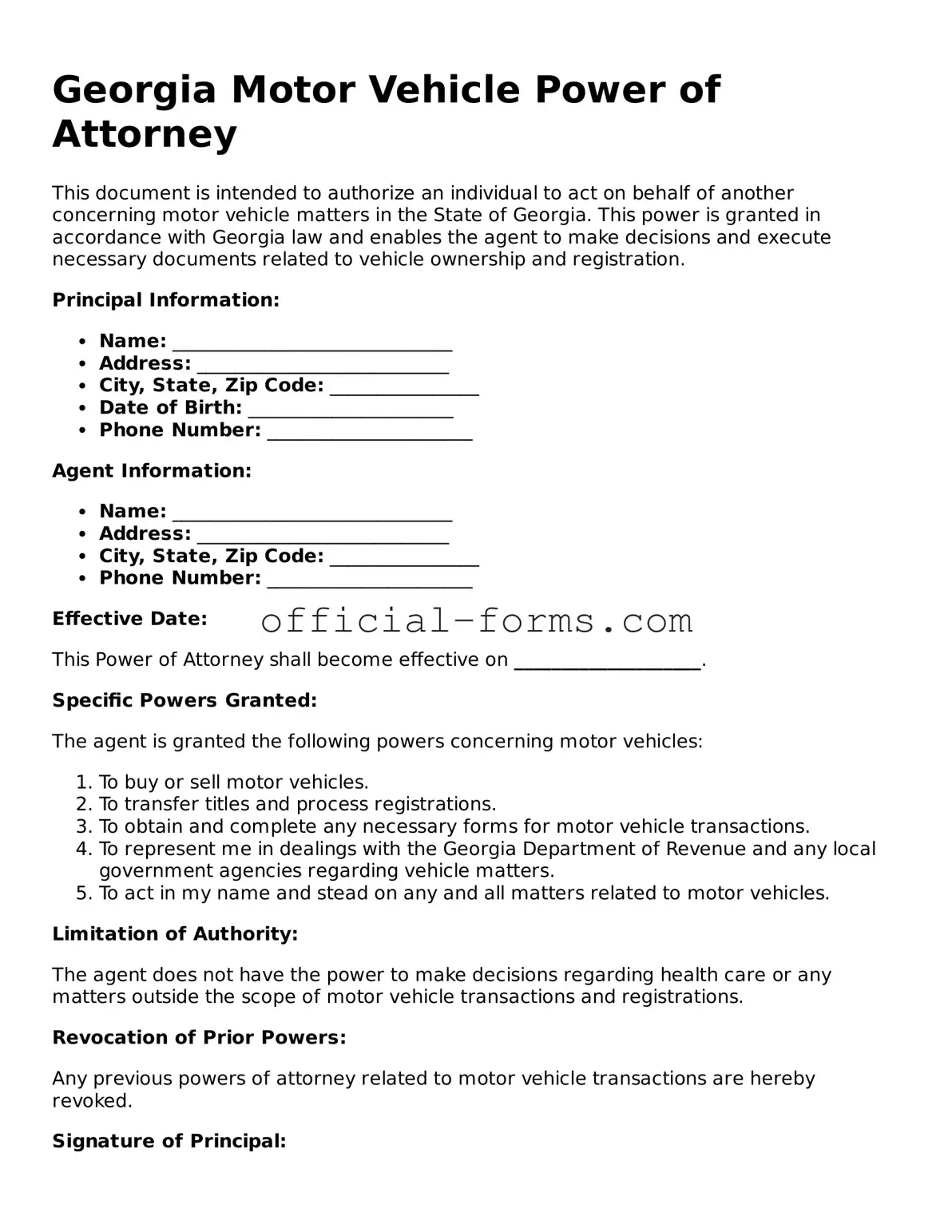Official Georgia Motor Vehicle Power of Attorney Document
The Georgia Motor Vehicle Power of Attorney form is a legal document that allows an individual to designate another person to act on their behalf regarding motor vehicle transactions. This form is crucial for anyone needing to transfer ownership, register a vehicle, or handle other motor vehicle-related matters without being physically present. Understanding how to properly complete and utilize this form can streamline the process and ensure compliance with state regulations.
Open My Motor Vehicle Power of Attorney Now

Official Georgia Motor Vehicle Power of Attorney Document
Open My Motor Vehicle Power of Attorney Now
Don’t leave your form incomplete
Finish Motor Vehicle Power of Attorney online quickly from start to download.
Open My Motor Vehicle Power of Attorney Now
or
➤ PDF
